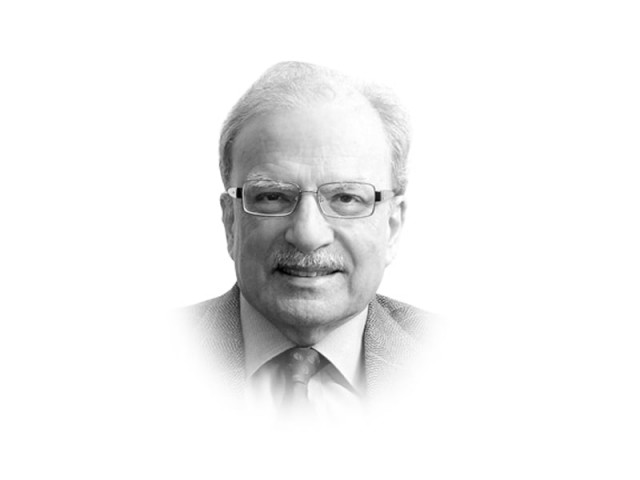Turning the Trump way
There is a consensus that even if Trump loses to Clinton, his campaign would have changed the world

The writer is a former caretaker finance minister and served as vice-president at the World Bank
That notwithstanding, a few political analysts believe he will make it to the White House in January 2017 when the successor to President Barack Obama will be sworn in as the country’s 46th president. That said, there is now a consensus that even if he loses to Hillary Clinton, who is very likely to lead the Democrats into the November elections, Trump’s campaign would have changed the world. There is a parallel between what he has done and 9/11 – the day 19 Islamic terrorists flew hijacked planes into New York and Washington – and the Trump campaign. Both events – the latter still unfolding – changed the way the United States looks at the world and the way the world views America.
Some analysts – the Financial Times’ Gideon Rachman, for instance – have concluded that the West, even though separated by the Atlantic, is seeing the rise of political movements that reinforce each other. The political right in France found a voice and a face in Jean-Marie Le Pen when, in 2002, he made it through to be the last two contestants in the presidential election. But he was less successful in the final round than Trump is likely to be in November 2016. The Frenchman won only 18 per cent of the vote; according to most analysts, Trump will get up to about 40 per cent. Le Pen’s fight for political space was picked up by Marine, his daughter, who now heads the National Front Party.
The Le Pens were inspired by two developments: reassertion of nationalism as a counter to the growing economic strength of the European Union and the rise of Islamic extremism in Europe. A growing segment of the European population was deeply concerned by the loss of sovereignty to Brussels. The most vivid demonstration of this fear is in Britain and the Brexit movement aimed at taking the country out of the European Union. The path travelled by the Le Pens was also taken by a number of other countries in the continent. Poland, Hungary and Austria went the same way responding to the arrival of more than a million refugees, mostly Muslim, from the Middle East, Afghanistan and North Africa. Rachman, in the article referred to above, lists five reasons that will profoundly affect the United States and the rest of the world by the Trump triumph. To begin with, there is rejection of globalisation and free trade, two developments responsible for the extraordinary performance of the world economy for almost two decades, from 1990 to 2008. However, the second theme is more serious. It is epitomised by the Trump slogan, “America First.” The global implication of America turning inwards is much more serious since Washington currently underpins the whole international system. This has been the case, in particular, since 1991 when the Soviet Union collapsed. This event was celebrated by American Sociologist Francis Fukuyama as the “end of history.”
The third theme is the embrace of the notion of “clash of civilisations” first put forward by the American political scientist Samuel P. Huntington. This view was rejected by both the American political right and the left. When President George W. Bush launched his “war on terror” he paid a visit to a mosque in Washington and said that the United States was not at war with Islam. President Barack Obama was even more explicit. A few months after taking office, he spoke at Cairo’s Al Azhar University saying that he was hoping to reach the entire Islamic world. He was “seeking a new beginning between the United States and Muslims around the world, one based on mutual interest and mutual respect, one based on the truth that America and Islam are not exclusive and need not be in competition.” By suggesting that America should keep all Muslims out until it had figured out what they would do to the country by gaining entry, Trump walked in the opposite direction.
A fourth theme in Trump’s discourse is the relentless assault on the elite, including Washington, Wall Street and the universities. The fifth theme is the distrust of the media including newspapers, television, and social networks. Although Trump used his Twitter account effectively to convey his messages to his followers, the political right launched a campaign to get social media to be more even-handed in the way conservative views were covered and presented.
Whether the shift in gears from the campaign to get the Republican nomination to win the White House will change the Trump tone and the content of his message is hard to judge at this time but much of the damage has already been done. It will be difficult to pull the public back from accepting the themes that put the New York billionaire on the frontline of American politics.
Published in The Express Tribune, May 16th, 2016.
Like Opinion & Editorial on Facebook, follow @ETOpEd on Twitter to receive all updates on all our daily pieces.
















COMMENTS
Comments are moderated and generally will be posted if they are on-topic and not abusive.
For more information, please see our Comments FAQ